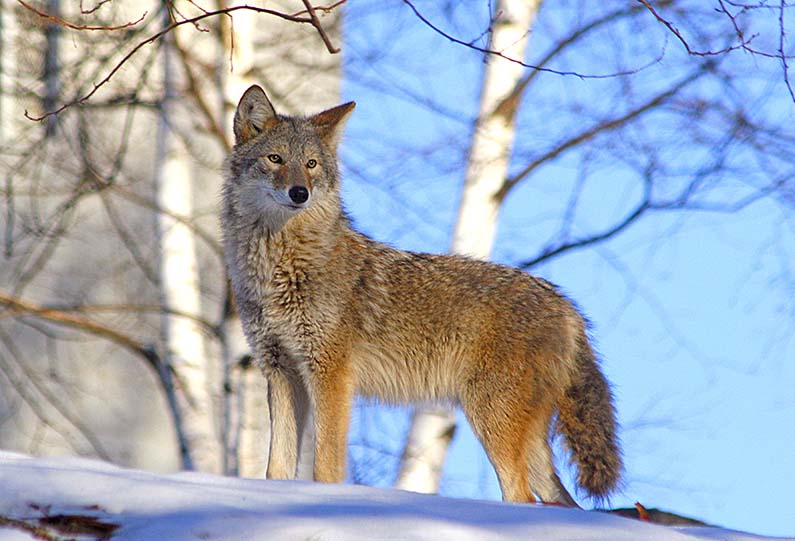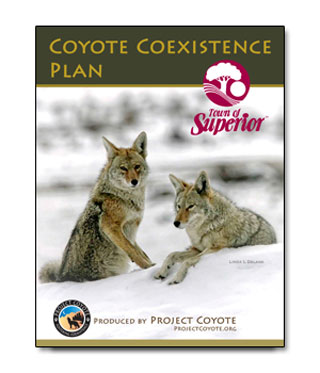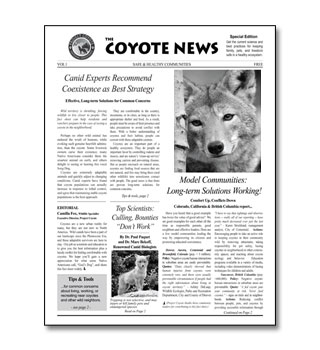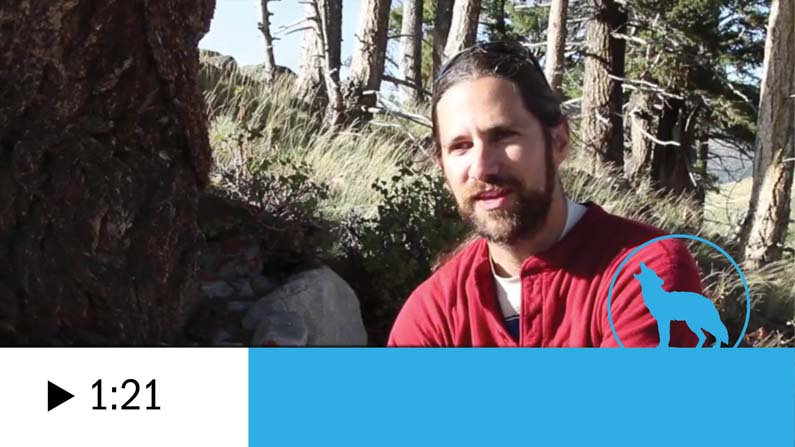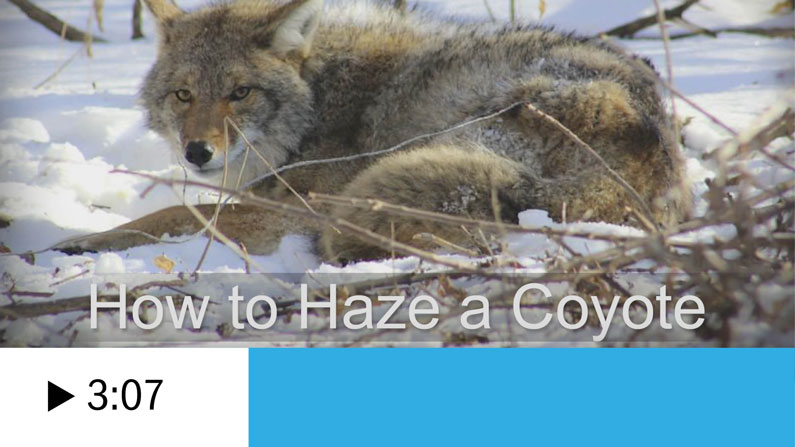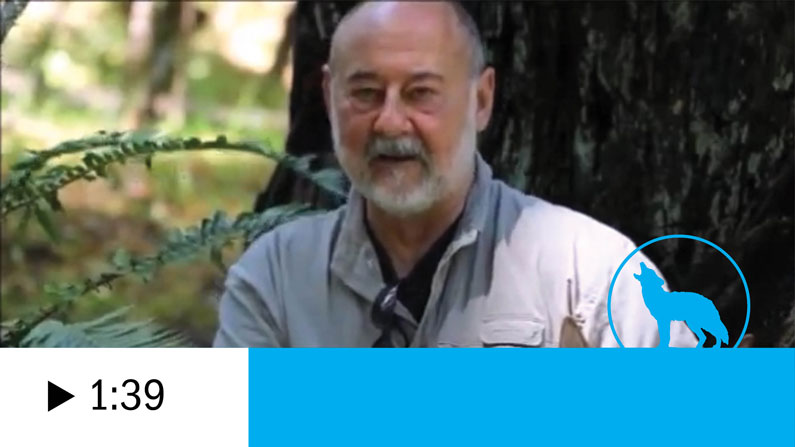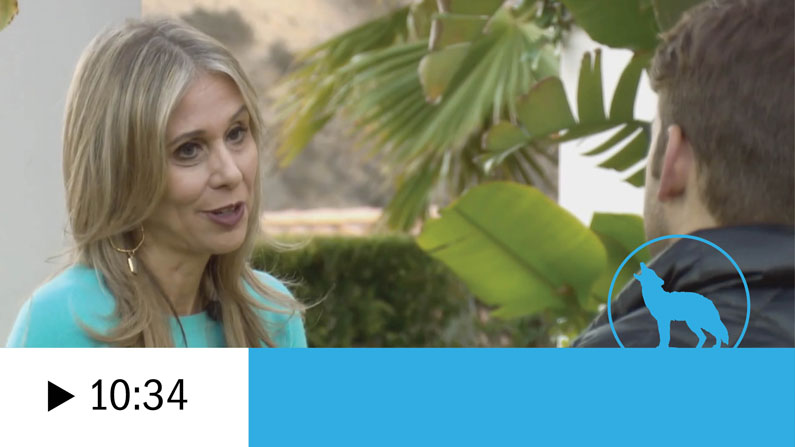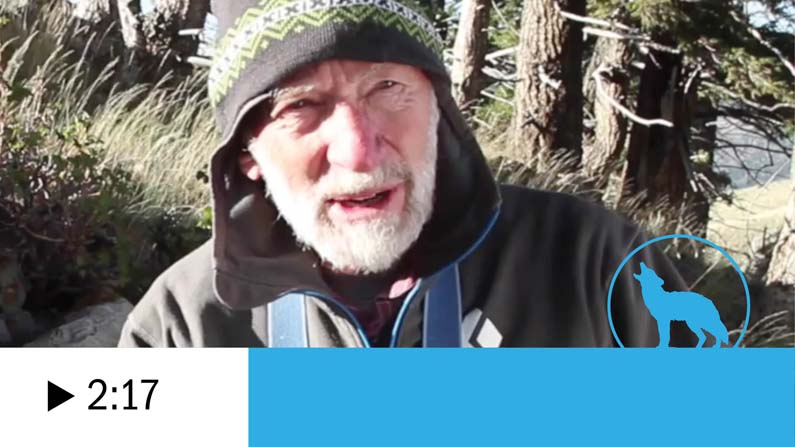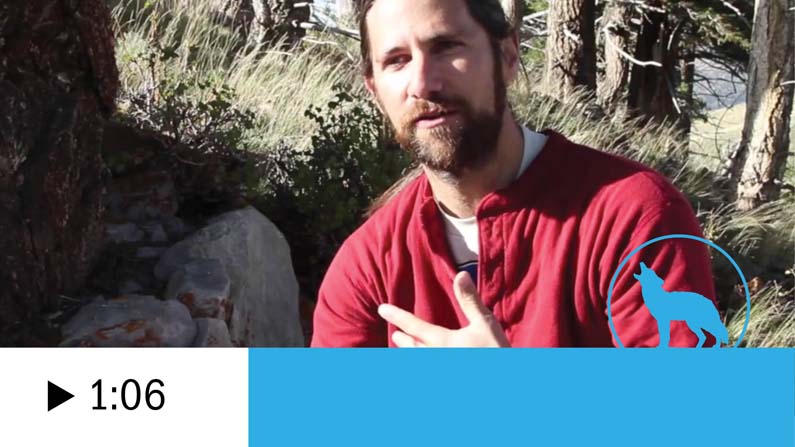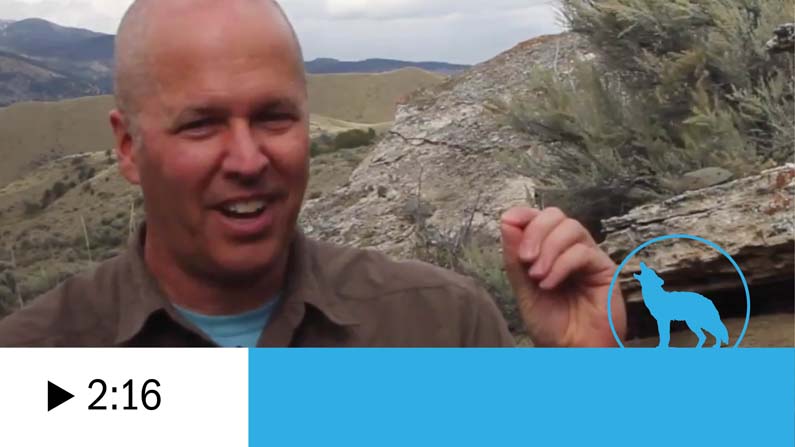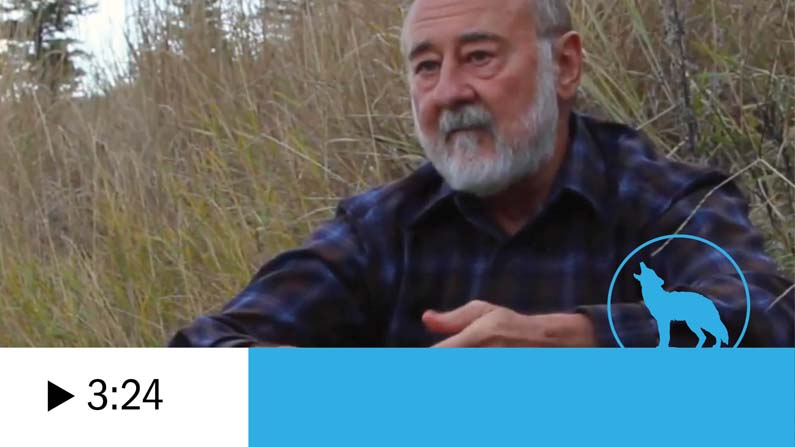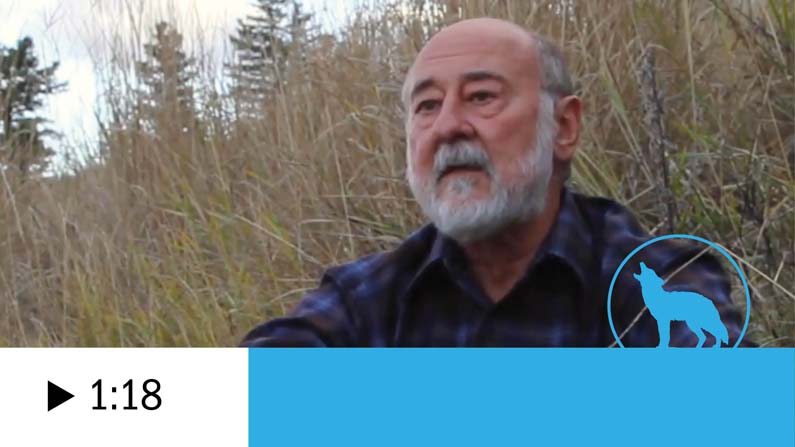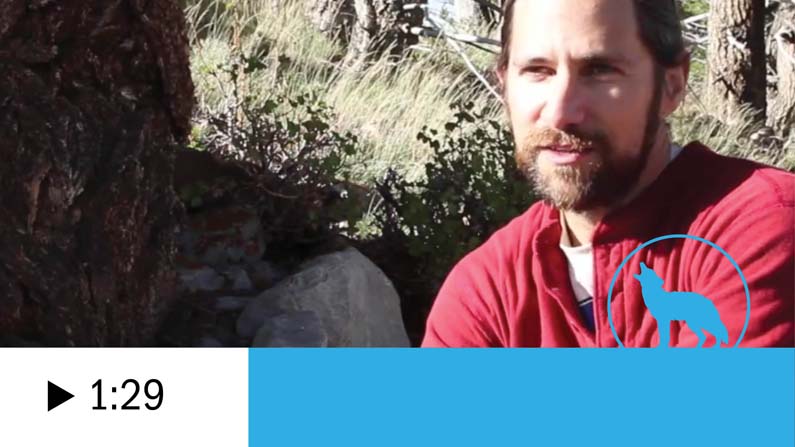
COYOTE FRIENDLY COMMUNITIES™:
DEVELOPING COEXISTENCE PROGRAMS IN URBAN AND RURAL COMMUNITIES
As coyotes expand their range into areas where wolves once lived and urban sprawl encroaches into wildlife habitat, human-coyote encounters are increasing. When people intentionally or unintentionally feed wild animals or encourage a lack of fear of humans, conflicts can occur. Since state wildlife agencies and local governments are often strapped for resources, urban wildlife issues and public outreach are not priorities.
Too often the solution to coyote conflicts — whether in agricultural or urban areas — is lethal and indiscriminate. Traditional control practices include trapping, snaring, poisoning, and denning (killing pups in their den). Not only is such an approach misguided, inhumane and generally ineffective, it also fails to consider the ecological value that coyotes provide to both urban and rural ecosystems such as keeping rodent populations in check and helping control disease transmission.
Project Coyote’s Coyote Friendly Communities™ program educates and equips urban and rural audiences with the tools, resources, and expertise needed to foster coexistence.
The keys to coexistence are education, communication, science, and behavior modification. We work in collaboration with municipalities, wildlife agencies, humane societies, wildlife rehabilitation facilities, research institutions, and schools. Project Coyote’s Coyote Friendly Community™ program, adopted by many jurisdictions, emphasizes consistent messaging, agency collaboration, and community empowerment.
Project Coyote Representatives give direct assistance and advice about how to live with coyotes and other wildlife. We offer public presentations and provide training to Animal Control Officers and law enforcement agencies.
Animal control officers are often the first to respond to public inquiries about wildlife near human homes. In order to ensure the best nonlethal and humane approaches to residential wildlife exclusion, Project Coyote is partnering with the National Animal Care & Control Association to equip animal control officers with the best science-based and most current information and tools. Learn more here.
Find Coyote Friendly Communities™ resources here.

